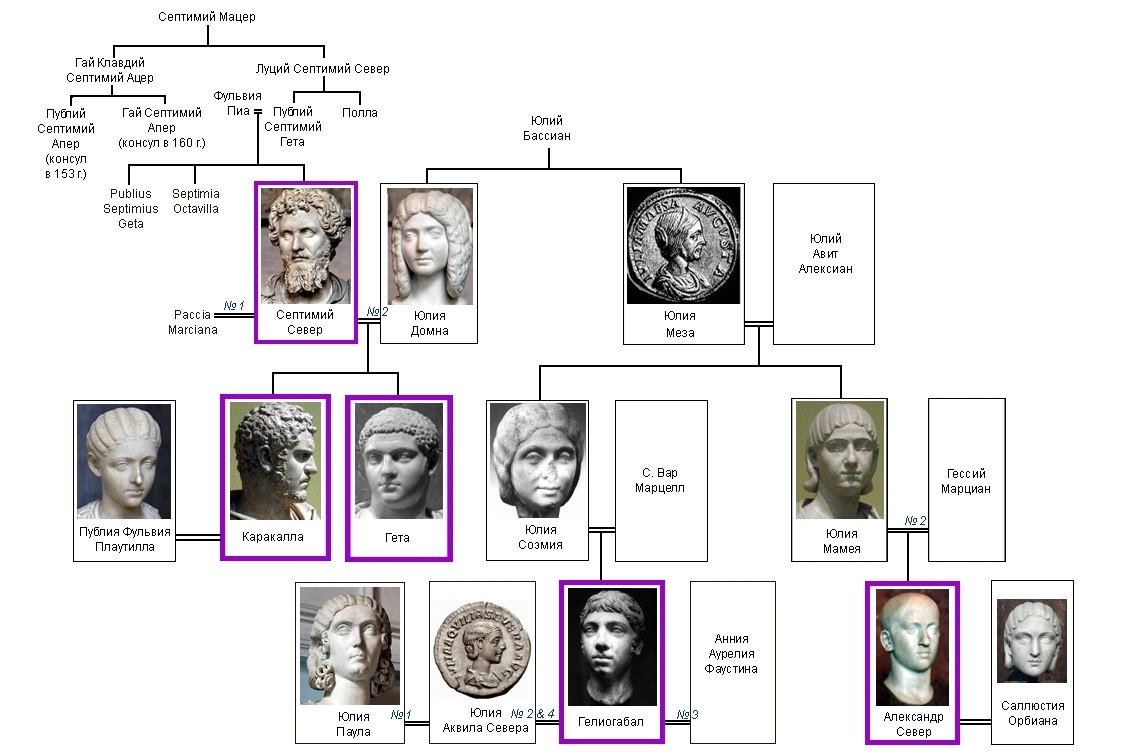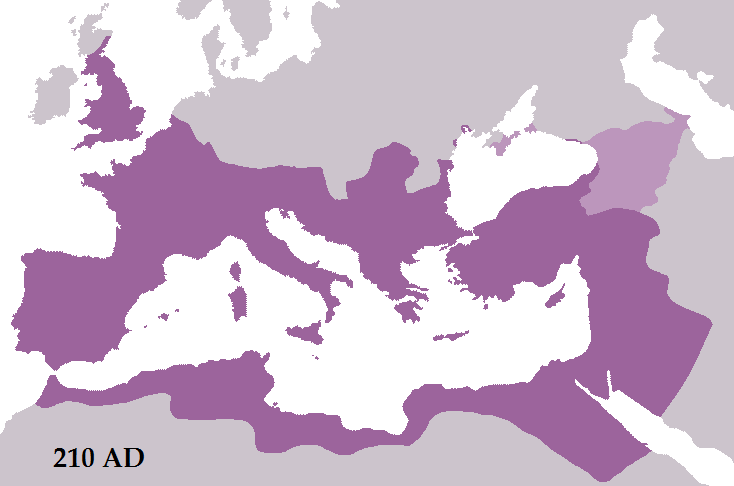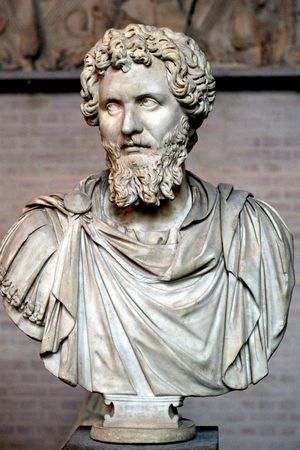Reign of the Severan Dynasty
The Severans (Latin: Severi) were a Phoenician (Punic) dynasty of Roman emperors from 193 to 235. The Severans established a military-bureaucratic monarchy that protected the interests of a wide range of slave-owners. The policies of the Severans (except for Alexander Severus) were anti-senatorial in nature.
The Severan dynasty included:
- Septimius Severus (193–211)
- Caracalla (211–217)
- Geta (211–212)
- Elagabalus (218–222)
- Alexander Severus (222–235)

The founder of the Severan dynasty in 193 was Lucius Septimius Severus, a native of Africa and a victor in the civil war. He was a ruthless and ambitious man, but also a capable administrator and talented military leader. In his policies, Septimius Severus relied exclusively on the army. Soldiers and officers received various privileges under him. For example, their salaries were increased, and they were allowed to have legal families. A legionary received food rations and a land allotment from the government as a tenant. Thus, professional soldiers gradually became military settlers. Under Severus, the process of "barbarization" of the Roman army accelerated.
The regime created by Severus represented a military-bureaucratic monarchy. The Senate lost its significance, with many senators executed and their property confiscated. The emperor's power became absolute. The emperor communicated his will to his subjects through written decrees known as Constitutions. The primary governing body became the Council of the Princeps.
Septimius strengthened his administration through equestrians and provincial elites. This period saw the militarization of the administrative apparatus. Overall, the number of administrators increased significantly under Severus. He also streamlined the taxation system. Avoidance of state duties was considered a serious crime.
The population, burdened by heavy financial pressure, sought tax immunity by any means, such as obtaining Roman citizenship, serving in the army, or joining the civil service. Septimius Severus sought the support of the urban plebs by expanding the policy of "bread and circuses." Severus cared about strengthening the empire's borders. On his orders, powerful fortified areas were built on the Rhine and the Danube.
In foreign policy, Severus's main achievement was the victorious war with Parthia. In 199, Mesopotamia was declared a Roman province, while the Romans ceded part of Armenia to the Parthian king. In honor of this victory, a triumphal arch was erected in the Roman Forum in 203, dedicated to Septimius Severus and his sons. From 208 to 211, Severus successfully fought the Caledonian tribes in Britain.
In February 211, at the age of 65, Severus died in the city of Eboracum—modern York. According to legend, on his deathbed, he advised his sons: "Live in harmony, enrich the soldiers, and disregard everyone else." Posthumously, Severus was deified.
 Map of the Empire during the Reign of the Severans, Early 3rd Century AD
Map of the Empire during the Reign of the Severans, Early 3rd Century AD
After his death, his sons Antoninus Caracalla and Geta inherited power in 211. The stepbrothers hated each other fiercely, and in 212, Caracalla killed Geta and all his supporters. The cruel tyrant then ordered the execution of his wife, cousin, and many other wealthy and noble people. Fiscal difficulties led to the publication of an edict in 212, declaring all free residents of the empire Roman citizens, making them taxpayers. Consequently, the tax burden sharply increased. Caracalla was hated by the senators but adored by the legionaries, whose pay he increased by one and a half times.
In 2015, Caracalla orchestrated a bloody massacre of civilians in Alexandria. In 217, at the beginning of a campaign against the Parthians, Caracalla was assassinated by order of his prefect Macrinus. Macrinus, a Moor by origin, was proclaimed emperor but was killed with his son by rebellious legionaries the following year.
In 218, Caracalla's cousin Elagabalus became emperor. Dissolute and unwise, Elagabalus indulged in hedonism instead of state affairs. The emperor lived in extravagant luxury, covering banquet halls with rose petals and eating camel heels. Having earned universal hatred, Elagabalus was killed in 222. His body was dragged through the streets of Rome by a hook, dunked in a sewer, and then thrown into the Tiber.
After his assassination, his cousin Alexander Severus became emperor. Under him, constructive dialogue with the Senate was restored. However, the army remained the main political force. Any reduction in legionary expenses by the government led to soldier unrest, often violent.
Meanwhile, a financial crisis loomed. The political situation in the East and on the Rhine sharply deteriorated. Alexander Severus's government attempted to buy peace with the Germans by paying enormous sums. When the legionaries learned of this disgraceful deal, a spontaneous mutiny broke out in March 235, during which the emperor was killed. The end of the Severan dynasty's rule marked the beginning of an unprecedented social and military - political crisis in the third century of the Roman Empire.
Related topics
Roman Empire, Emperors of Rome, Reign of the Antonine Dynasty, Crisis of the last Antonines, Crisis of the 3rd century in the Roman Empire



